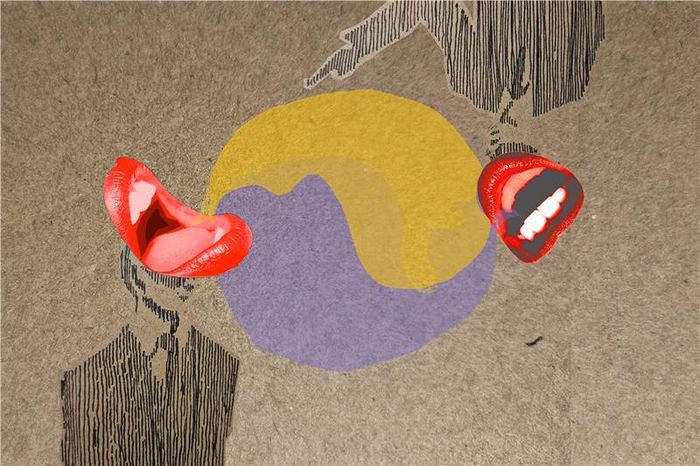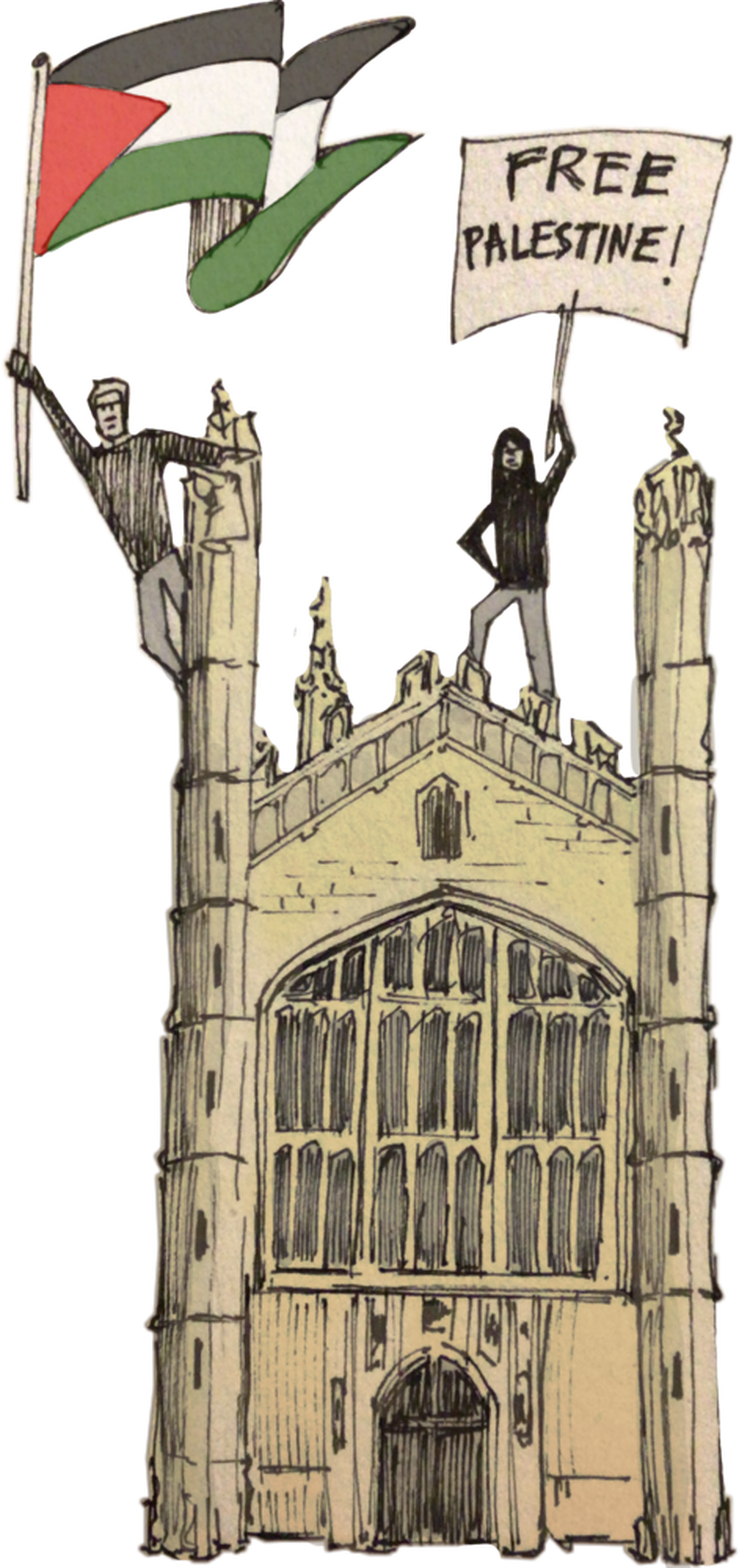Cambridge students have long engaged with the Palestinian cause. “The horror we feel against the genocide in Gaza isn’t just a student issue. It’s a human issue,” a spokesperson from Cambridge For Palestine (C4P) emphasised when asked about the background of the movement.
Before 2000, Cambridge student engagement with Palestine was a limited, academic exercise. Both the 1967 Six Day War and the outbreak and repression of the First Palestinian Intifada in December 1987 saw responses restricted to discussion and debate. A vague plea submitted by a student in February 1988 to the Comment section of Varsity seems characteristic: “the strong (must) take care of the weak and needy”.
A Cambridge University Palestine Society has existed since at least 2006. Its level of support has increased dramatically: in 2006, it registered just 17 members.
However, the 2008-9 Gaza War was a turning point. Between the 23rd and the 29th of January 2009, more than 100 Cambridge students occupied the Law Faculty. The movement’s demands included aid for Gaza universities, scholarships for Palestinian students, University divestment from the arms trade, and a University-issued statement condemning what they saw as the blockade of Gaza and Israel’s presence in Gaza and the West Bank. Forced to abandon the Law Faculty protest by the threat of a court injunction, the encampment’s results were modest.
“The horror we feel against the genocide in Gaza isn’t just a student issue. It´s a human issue”
That year, the University agreed to endorse a statement by Universities UK calling for an end to the Gaza conflict and confirming a commitment to the right to education. The Registrary also issued a reminder of existing donation opportunities to areas experiencing conflict to faculties. However, the University made no direct donations to the Disasters Emergency Committee or the UNRWA Gaza Appeal. Calls for divestment were met only with a restatement of the University’s existing Statement of Investment Responsibility. No scholarship provisions were made for Palestinian students.
In 2009, 60 academics signed an open letter to the Vice-Chancellor, praising the “initiative taken by Cambridge University students in asking this University to respond to the recent humanitarian catastrophe in Gaza”.
Yet the inclusion of yoga and spoken word poetry in its timetable, as well as frequent sightings of smoke breaks and trips to Sainsbury’s, undermined perceptions of the occupation’s integrity. In a January print edition of Varsity, student Mark Wolfson dubbed the participants as “Rah Rah Revolutionaries”. A CUSU motion supporting the occupation of the Law Faculty was defeated on the sixth day of the protest.
Student activism continued through the Cambridge University Palestine Solidarity Society (PalSoc), which remains the leading student-only organisation for Palestine in Cambridge. During the decade preceding October 2023, PalSoc organised screenings of Palestinian films and documentaries. In 2014, the society promoted a University-wide arms divestment campaign.
“While the society has existed long before 2023, in a sad, but positive as well, twist of fate, many more students joined the movement, became aware, and wanted a space to channel their grievances,” a PalSoc spokesperson said.
“We’re a student society […] but we recognise that Palestine liberation activism requires collaboration with the grassroots”
In the immediate aftermath of the conflict’s outbreak, PalSoc continued arranging film screenings, protests, and fundraisers for charities providing medical aid for Palestinians, and maintained its pressure on the University to divest from the arms trade through lecture walk-outs and sit-ins.
In conversation, the spokesperson emphasised the importance of cooperation with other activist groups at Cambridge: “We’re a student society […] but we recognise that Palestine liberation activism requires collaboration with the grassroots […] A lot of our students come for three to six years and then leave, but we want our impact as students to be long-lasting.”
Since 2024, PalSoc have worked alongside Cambridge for Palestine (C4P), a student-led coalition of students, University staff, and local Cambridge residents whose stated aim is to stand “against the University of Cambridge’s complicity in apartheid and genocide”. During Freshers’ Week in 2024, PalSoc put out a ‘coalition timetable’ of events, together with C4P and local groups such as Cambridge Jews for Justice in Palestine. This initiative expanded this academic year to online posting of ‘coalition calendars’, highlighting various events organised by each group: “We see it as our purpose to make students aware of things that they can be doing in the community based on how committed they want to be.”
The coalition grew out of the encampment on King’s Parade, which began on the 2nd of May 2024. C4P was formed at the beginning of the encampment, which was also supported by PalSoc and Cambridge Jews for Justice. Chief among the demands of the protesters were that Cambridge University disclose and divest from its alleged investments in companies associated with Israel.
“Our local community was absolutely indispensable in running our movement”
When asked about the origins of the encampment, a C4P spokesperson said: “The encampment was a literal amalgamation of several groups who are against the genocide of the Palestinian people. In particular, we aimed to expose our university’s deep complicity in the genocide.
“Our local community was absolutely indispensable in running our movement. The food, tents, traps and everything in between were mainly provided by them.”
Indeed, C4P have been more of a presence in Cambridge than the short-lived 2009 protest. A University Working Group on Divestments was established in July 2024. The University issued a statement on the 1 August 2024, stating that “review processes relating to responsible investments and research relationships” would take place rapidly during Michaelmas term 2024 – the encampment disbanded that month.
The University’s amendments to the terms of the Working Group, including reduced student representation and delays to the review process, triggered further C4P encampments in November and December 2024 and May and June 2025. In response, the University was granted a 12-month legal injunction prohibiting protest on sites including Senate House Yard and Greenwich House in a High Court ruling in July 2025. When questioned about the injunction, the University referred to a previous statement on its desire “to protect the right of our students to graduate and for staff to carry out their work”. Asked about the protest movement more generally, a University spokesperson stated that “the University firmly supports our student’s right to freedom of speech and protest within the law”.
“Cambridge has the power to act morally if it chooses to”
Nonetheless, protests provided the background in institutional change. Following a report from the Working Group, the University Council voted in October this year to divest from companies investing in weapons abroad that are illegal in the UK. Although the University has not yet agreed to cut ties with companies involved in conventional weapons manufacture, C4P described the Working Group as a “direct concession to our movement’s power”. It “proves that Cambridge has the power to act morally if it chooses to”.
Divestment campaigns have since spread to several colleges. In May 2025, the Governing Body of King’s College agreed to adopt an investment policy that amounted to divestment from arms companies. Queens’ for Palestine (Q4P), established in June 2024, pushed for a JCR referendum to create a collegiate workig group on arms divestment – the motion passed successfully in November this year.
“I think what the referendum in the sit-in showed is that there are a significant number of people in Queens who care about this issue and who are willing to show up and use their voices and things to support the issue,” a member of Q4P told me. “It’s been very empowering and very fulfilling in a way that sometimes student activism cannot feel in Cambridge.”
“It’s been very empowering and very fulfilling in a way that sometimes student activism cannot feel in Cambridge”
The resurgence of the movement has also generated frustration from within the Cambridge academic community. Matthew H. Kramer, a Fellow at Churchill College, who opposed the 2009 protest, equally condemned the May-August 2024 encampment as “prolonged and disruptive acts of trespass”.
“Far from upholding the principle of freedom of expression, the University’s acquiescence in the prolonged and disruptive occupation of a portion of its grounds by pro-Hamas activists was a flagrant contravention of the principle of freedom of expression – because it was a flagrant contravention of the requirement of viewpoint-neutrality,” he asserted.

The state of debate in an age of polarisation
Despite this academic anger, in June 2024, the Student’s Union (SU) voted to support the King’s Parade encampment and its demands for disclosure and divestment. Moreover, in a SU referendum which closed in late October this year, 84% of the more than 4,000 student voters agreed to “end university investments and collaborations with institutions involved in occupation and weapons manufacture.”
Clearly, student activism for Palestine has come a long way since the 1960s. Sporadic discussion has evolved into a more organised protest movement, providing an important backdrop to institutional change. As the PalSoc spokesperson explained, student activists are not going away: “they would feel a sort of dissonance if they continued life as normal”.

